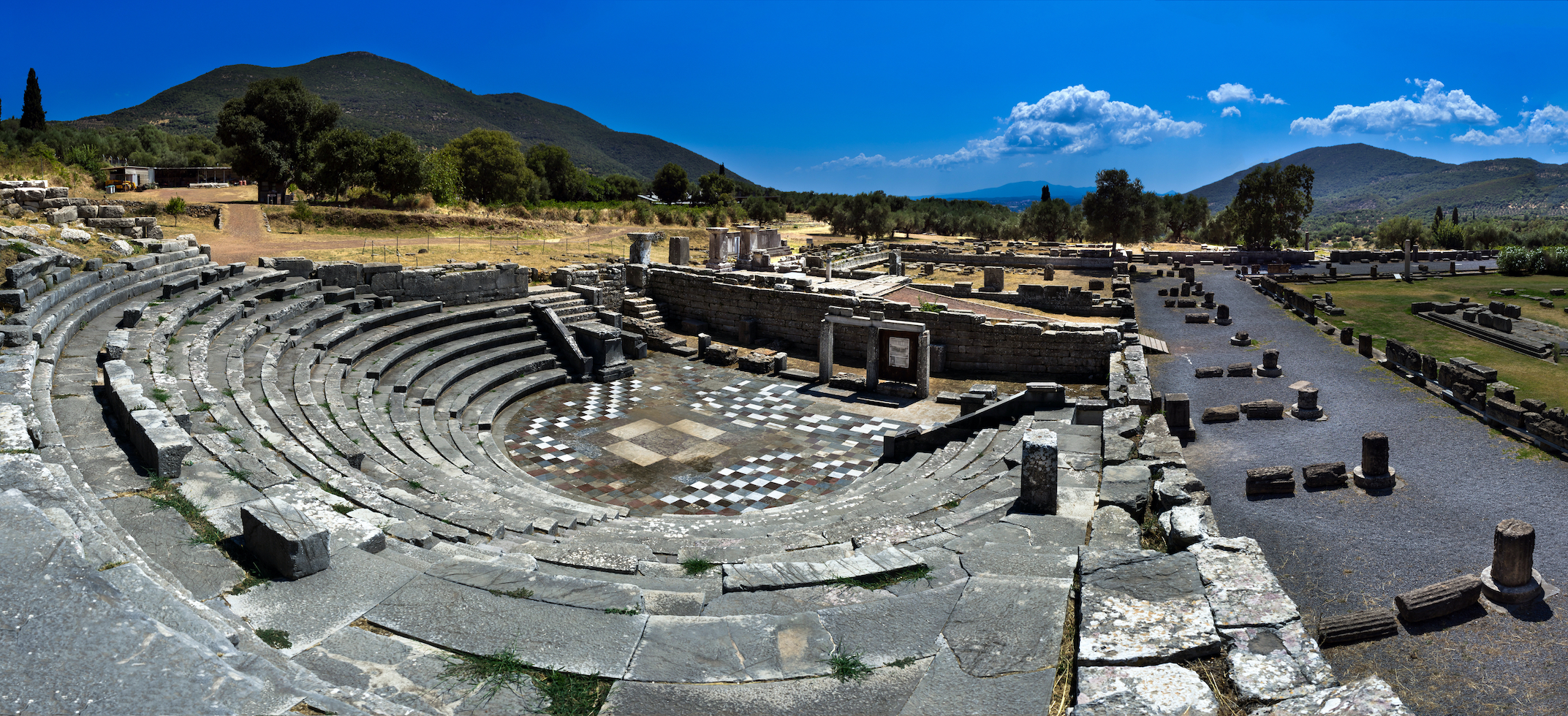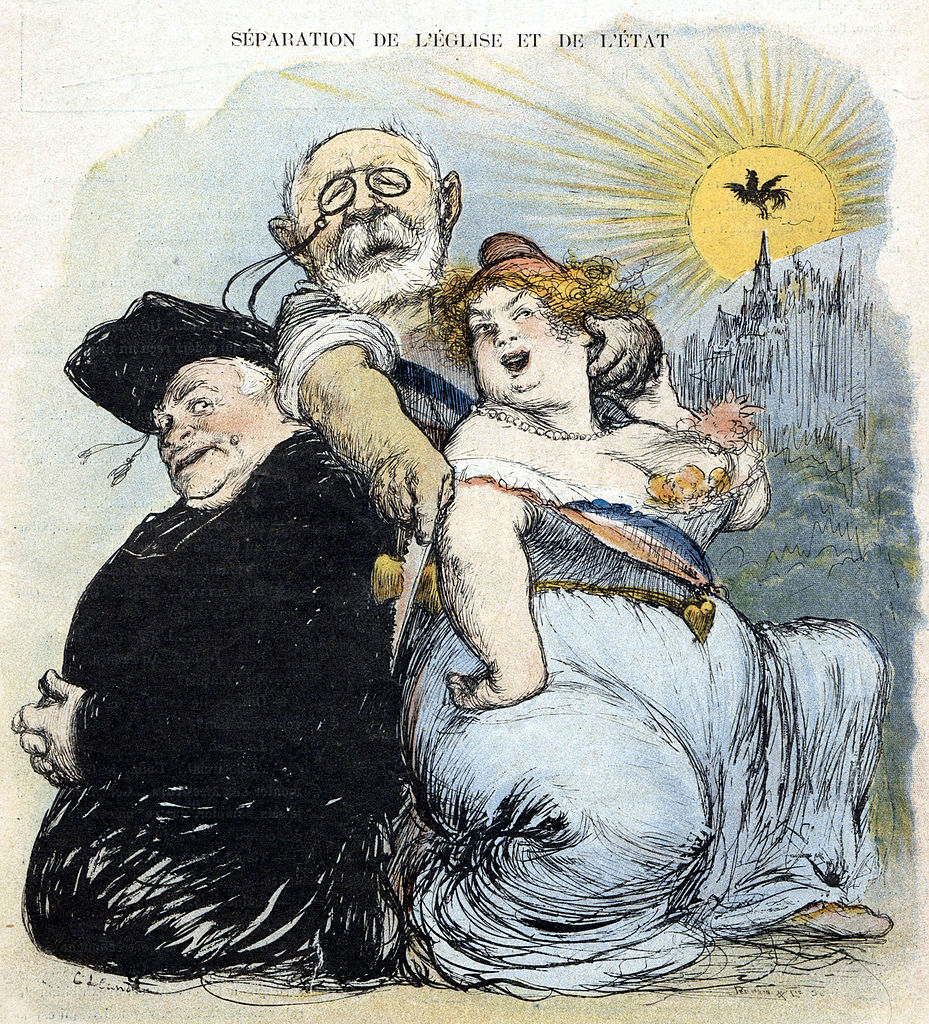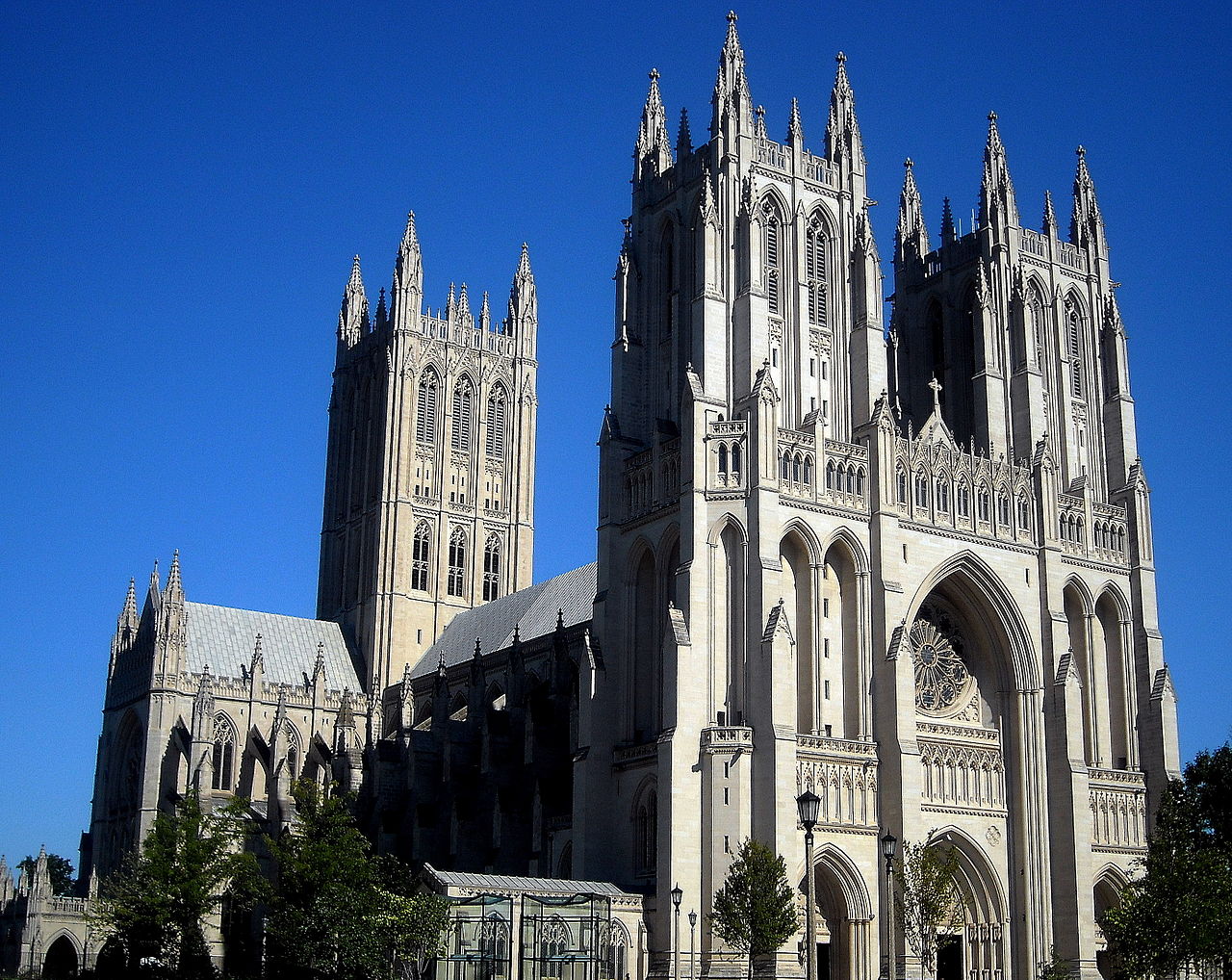Politics can become a source of primary identity; a source of ultimate meaning. It can become something which competes with religion in the traditional sense. Another important facet of this is the relationship between religion and authority in modern societies. If we look specifically at the history of Christianity, from the very beginning, Christianity has always had both authoritarian and proto-democratic tendencies.
The relationship between religion and politics
Professor of Sociology and Religious Studies
- Politics can become a source of primary identity; a source of ultimate meaning. It can become something which competes with religion in the traditional sense.
- In Western societies, the dominant way of thinking about how religious and political authority can and should be related is that religion should in some sense be private.
- In the US, religious display and religious speech in public is seen as an expression of one’s personality and an exercise of one’s religious freedom, whereas it is interpreted in French context as an unwanted intrusion of private religious belief into the Republican political space.
A historically intertwined relationship
Let me begin by saying a little bit about the relationship between religion and politics. The first important observation is that in the long sweep of history, religion and politics were often completely intertwined. The distinction between them is something which in many ways is specific to modern societies. In tribal and ancient societies, there was no distinction between religion and political belonging.
If you think, for example, about the ancient Greek religion of the Polis, it was not in any way separate from membership in the Polis itself. In modern societies, one of the consequences of that is that politics continues to have an almost religious unconscious that can be reactivated.

Ancient Greece, Messene. The Ekklesiasterion, used for cultic performance and political gatherings. Public Archaeological Site. By Violeta Meleti.
Ambivalence between democracy and authoritarianism
If you read the Christian scriptures, both the Old and the New Testament are shot through with monarchical language. Jesus and God are both referred to as Lord. Heaven is often referred to as The Kingdom of Jesus. So, there is always an authoritarian potential within Christianity. At the same time, we can see ways in which Judaism and Christianity both anticipated key elements of modern democracy. We find, for example, an emphasis on human equality: humans being created in the image of God. We find an emphasis on the rule of law: human societies being bound by a covenant with God, by divine law.
We even find a separation of powers, for example in the Ancient Hebrew polity. In these and other senses, we find an ambivalence between democracy and authoritarianism within Christianity. I think in the case of the United States, those authoritarian potentialities have been forgotten or downplayed – at least until recently, because in the United States, there was a proto-democratic form of Christianity which really took hold and took root.
The (complicated) relationship between religious and political authority
There are different ways of thinking about how religious and political authority can and should be related. The dominant way of thinking about this within Western societies is that religion should in some sense be private. What that means varies a great deal from one place to another. I think the places where you find the strongest understanding of separation and the strongest belief that religion should be a private matter are in France and the United States, where there has been a formal, constitutional separation of Church and State for quite some time; longer in the United States, but over a century for France as well.

Caricature from “Le Rire”. The cropped caption said: “Et M. Bienvenu-Martin continue toujours avec beaucoup de Briand son opération chirurgicale.” (1905 French law on the separation of Church and State.)
This doesn’t completely resolve this tension because Christianity, or Judaism or Islam for that matter, are all ethical religions. They are not mystical religions. They are not religions that tell people to try to escape from the world; they are religions that specify certain kinds of ethical conduct as crucial to a religious vocation and even to divine salvation. That means that the way that one organises one’s life, one’s ethics, one’s values will inevitably seep into one’s political views.
Resolving the tension
I don’t know that this tension can be ultimately resolved in a stable way. I do think that one characteristic of liberal democracies is that citizens have agreed to disagree about certain kinds of ultimate concerns. They have agreed that each is free to follow the religion of their choice, or no religion at all, but that particular bargain is at the moment somewhat under pressure from movements on the political right, in particular, which want to see a closer relationship between private and public identity, between religious and political identity.
In short, they want to see a fusion between religious identity and national belonging, which in these societies typically means some sort of officially Christian identity or at best, a kind of second class citizenship for non Christian citizens or residents of the nation.
The separation of Church and State in France and the US
We see some significant differences between France and the United States. The clause that effectively establishes separation of Church and State in the US Constitution is that there shall be no establishment of religion and that there shall be no restriction on freedom of religion. What this effectively is, is an effort to protect the exercise of religious freedom from State coercion. So, the fundamental motivation behind separation of Church and State in the United States, originally, is a means of protecting religion from the State, of protecting the free exercise of religion.
This, at least in my understanding of the 1905 laws – which are really the beginning of separation of Church and State in France – has much more to do with protecting the public sphere from religious zealotry and creating a civic identity, which is quite separate from religious identity. I think this is also one of the reasons why the boundary between public and private Church and State is drawn more strictly in France than it is in the United States.
Where the lines are drawn
The way I describe this is that in the United States, the private sphere is a kind of protective shell around your body. Religious display and religious speech in public is seen as an expression of one’s personality and as exercise of one’s religious freedom.
The same is interpreted in French context as an unwanted intrusion of private religious belief into the Republican political space so that, in a sense, the exterior of your body in the French public space is itself considered a public space where you are to act and put yourself, strictly speaking, as a citizen.
The Western European vision of religion in the private sphere
There’s great variation within Western Europe and that has to do with the particular historical experiences of different countries in different regions, from the Reformation period onwards. Broadly speaking, the Germanic world – Germany, Scandinavia, areas that were much more influenced by Lutheranism – had the formation of State Churches, which were really Departments of State in a meaningful sense. Religion becomes part of the Ministry of Culture’s responsibility, so there is a sort of public religion which you’re not required to belong to, but which nonetheless has certain public functions.
In the case of Germany’s reactions to the right-wing nationalist movement, there are Lutheran bishops or Catholic bishops who are, by virtue of their office, entitled to speak on that subject. You have something similar in the case of the Anglican establishment within the UK. Of course, there are lots of smaller Protestant denominations and sects there – in that sense, it’s more like the United States. Yet, the Church of England is still a public authority in a way that has no analogy in the United States. Catholic regions are, again, something different, in that the ultimate authority in religious matters is the Pope, who, unless you happen to reside in Italy, does not speak in the name of your country at all, but in the name of the Church.
How national Church–State arrangements play out in citizens’ lives
I refer to these as secular settlements. These are the formal and informal arrangements and understandings which take place in the wake of the Reformation and then crystallise and coalesce during the Church–State struggles during the 19th and early 20th century. Some of this goes far beyond the broader Church–State relationships and is very specific and bureaucratic. The French government often pays for the maintenance, renovation and restoration of Church buildings. Why? Because it defines them as part of the cultural patrimony of France.

Washington National Cathedral in Washington, D.C. Wikimedia Commons. Public Domain.
This is something that would be completely impossible in the United States, apart from a couple of exceptional examples like the Washington National Cathedral in Washington, DC, which proves the rule that there can be no transfer of money.
This is similar practice in the realm of education. There are Catholic schools in France, denominational schools in Germany. The same is true in the Netherlands, where schools have a religious affiliation but are nonetheless supported with public funds. This is once again unimaginable in the United States, not for any high-minded constitutional reason, but because of conflicts that took place in the second half of the 19th century between the Protestant majority and the Catholic majority about the role of religion in public schools and the financing of denominational schools by the government. So, this is all very nuanced and variable, and quite specific from one national context to another.
Discover more about
religion and politics in Europe and the US
Gorski, P. S. (2011). The Protestant Ethic Revisited. Temple University Press.
Gorski, P. S. (2003). The Disciplinary Revolution: Calvinism, Confessionalism and the Growth of State Power in Early Modern Europe. University of Chicago Press.
Gorski, P. S. (2013). (Ed.). Bourdieu and Historical Analysis. Duke University Press.